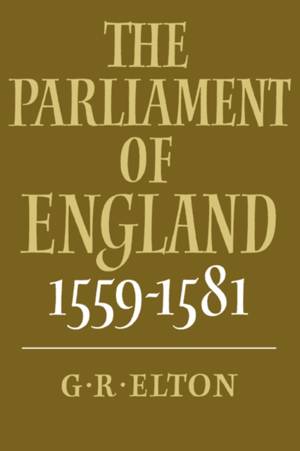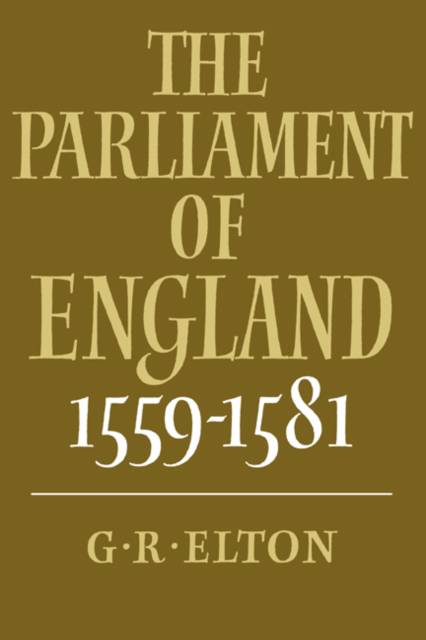
- Afhalen na 1 uur in een winkel met voorraad
- Gratis thuislevering in België vanaf € 30
- Ruim aanbod met 7 miljoen producten
- Afhalen na 1 uur in een winkel met voorraad
- Gratis thuislevering in België vanaf € 30
- Ruim aanbod met 7 miljoen producten
Zoeken
€ 86,45
+ 172 punten
Omschrijving
This is a comprehensive account of the parliament of early modern England at work, written by the leading authority on sixteenth-century English, constitutional and political history. Professor Elton explains how parliament dealt with bills and acts, discusses the many various matters that came to notice there, and investigates its role in political matters. In the process he proves that the prevailing doctrine, developed by the work of Sir John Neale, is wrong, that parliament did not acquire a major role in politics; that the notion of a consistent, body of puritan agitators in opposition to the government is mere fiction and, although the Commons processed more bills than the House of Lords, the Lords occupied the more important and influential role. Parliament's fundamental function in the government of the realm lay rather in the granting of taxes and the making of laws. The latter were promoted by a great variety of interests - the Crown, the Privy Council, the bishops, and particularly by innumerable private initiators. A very large number of bills failed, most commonly for lack of time but also because agreement between the three partners (Queen, Lords and Commons) could not be reached.
Specificaties
Betrokkenen
- Auteur(s):
- Uitgeverij:
Inhoud
- Aantal bladzijden:
- 412
- Taal:
- Engels
Eigenschappen
- Productcode (EAN):
- 9780521389884
- Verschijningsdatum:
- 25/08/1989
- Uitvoering:
- Paperback
- Formaat:
- Trade paperback (VS)
- Afmetingen:
- 151 mm x 226 mm
- Gewicht:
- 530 g

Alleen bij Standaard Boekhandel
+ 172 punten op je klantenkaart van Standaard Boekhandel
Beoordelingen
We publiceren alleen reviews die voldoen aan de voorwaarden voor reviews. Bekijk onze voorwaarden voor reviews.











